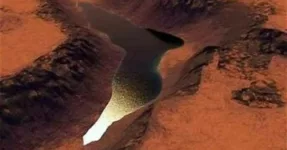Scientists all over the world are still celebrating the discovery of water on our favourite red planet. Since NASA announced the existence of water on Mars, researchers can’t wait to get their hands on more data. The Curiosity rover could theoretically start gathering more information at the long dark streaks, believed to be formed by summer water flow, but according to self imposed laws it is not allowed to.
To protect other worlds from earthly contamination, an organisation called the committee on space research (Cospar) draws up the rules to prevent missions from Earth contaminating untouched environments of other worlds. There are different categories defining how “clean” landers are, and the Curiosity is not clean enough to investigate special regions that could have water. Some scientists argue that the intense radiation (especially ultraviolet light) on Mars, has killed any microbes that might have survived the trip, but the US National Academy of Sciences and the European Science Foundation, argue that the UV light might not to the job
“Although the flux of ultraviolet radiation within the Martian atmosphere would be deleterious to most airborne microbes and spores, dust could attenuate this radiation and enhance microbial viability,”
Obviously scientists are not united in their opinion on what the rover may or may not do, giving room to a lot of hot discussions in the weeks to come.
Completely sterilizing space bound objects is a harder job that most of us imagine, surprisingly there are lots of live organisms that can survive space travel and pose potential danger to alien environments. The next rover mission is the ExoMars 2018, planned to dig deep into Martian soil, looking for signs of life. The engineers are taking planetary protection very seriously and using different cleaning methods to avoid any mishaps. It seems like scientists have to wait a few more years before getting any new, useful data.








